In the mountains we are held: community in the Croesor valley
Silvia Rose writes about the people and places that make up the unique community of the Croesor valley in Eryri.
When I tell people I live in a small village in north Wales, I sometimes imagine their eyes glazing over, as they picture a twee existence comprising sheep, tea cosies and muddy boots, isolated perhaps from the ‘real’ big and shiny world. Or perhaps that’s just me projecting. Even now, after being born and raised in the Croesor valley, spending my adolescence in its fields and along its tracks, and settling back here as an adult, the idea of being a countryside dweller still doesn’t sit right. I’ve always felt more inspired by towns and cities, the possibility and variety in the air, the newness. I spent years travelling and living abroad, wanting to be a citizen of the world, rootless and free. And yet…
This place. It casts a low, rumbling spell that draws you back.
I’ve often reflected on this phenomenon, which has been shared by many before me and will continue for generations ahead. Even after experiencing foreign landscapes and languages, or pursuing a glamorous career, Croesor waits, steady, for your inevitable return.
But why do we choose to return? It’s tucked-away, remote. Public transport is almost non-existent. Going to the cinema or out for a meal is a luxury and involves careful planning. It really does rain a lot.
Besides the startling natural beauty and relatively peaceful way of life, for me, the answer lies in the people. The community. This core human need which has almost become a buzzword; people are so hungry for it in a society increasingly lacking in familiarity and cohesion. There is a special type of belonging that is felt when you live amongst people who taught you in school, who remember the morning you were born, who have shared hundreds, maybe thousands, of small inconsequential moments that have stacked up to form something solid and true: connection.
This knowingness is experienced by countless other small communities, I’m sure. But what makes this valley unique, I believe, is the mix of people: incomers from different cultures settling here to start families, farmers whose ties to the land spool back generations, upper, lower, wealthy-hippie class, radical and old school. All coexisting, often friends.
You can find Croesor in the Eryri National Park, nestled in the u-shaped groove of the Moelwynion mountain range: Cnicht, often dubbed the ‘Welsh Matterhorn’ because of its satisfying triangular peak, and Moelwyn Mawr and Bach, the two softer, more maternal mounds. The natural landscape is simultaneously comforting and dramatic, full of gradients and visual texture: millennia of snail-pace transformation, budding hawthorn trees, ancient moss carpeting woodland, damp grassy fields and icy fresh streams leading paths from the mountain tops. It attracts hikers all year round, who also come to explore the relics of the slate quarries which sparked the village into existence in the 1850s. Back then it would have been a flurry of activity, transporting carts of slate along the steep inclines, producing 2,000 tons of slate each year to make billiard table tops, chimney slabs, gravestones and ornaments. The community was formed by miners and their families and prompted the opening of the chapel and school, both of which are now closed. When the quarry closed in 1930, what then sustained the community – not just locals but outsiders too?
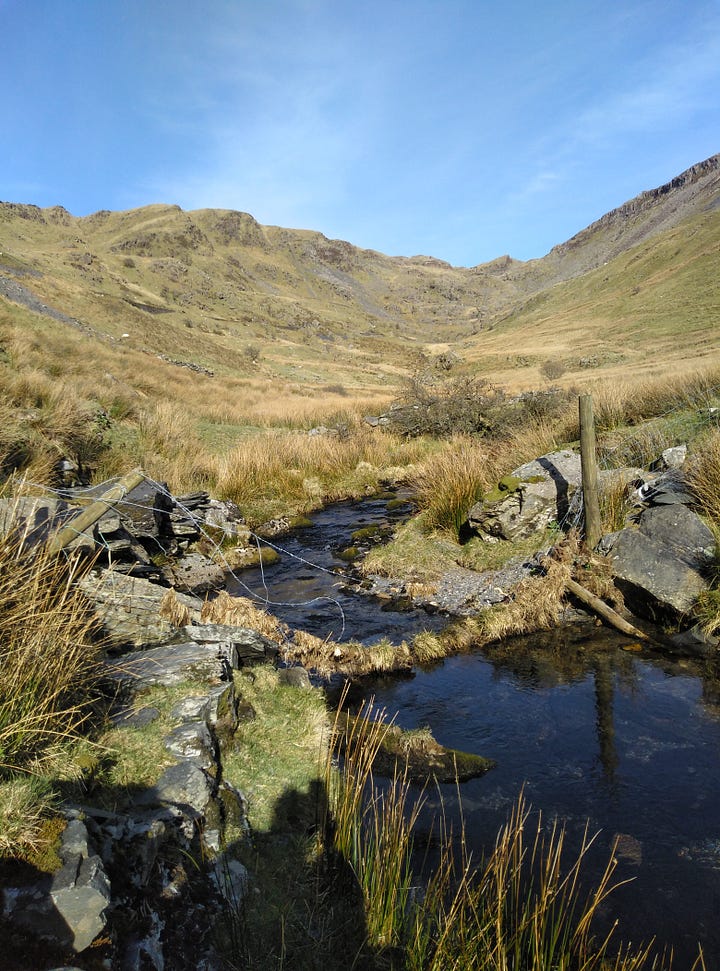
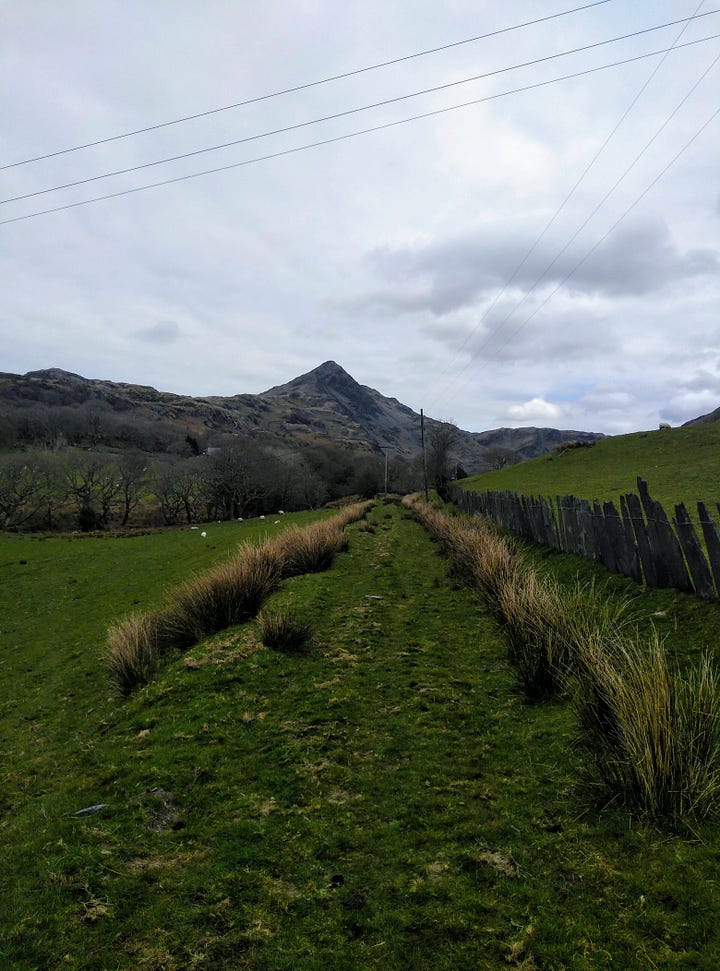
Croesor and its neighbouring village Llanfrothen has a history of housing artistic characters, most notably the famous architect Clough Williams-Ellis. Best known for creating the Italianate village Portmeirion – backdrop to surreal TV series The Prisoner and, more recently, Festival No.6 – Clough was an eccentric creator and preserver of beauty, with fierce environmentalist and socialist currents running throughout his life. Coming from a family with ancient ties to the area (even direct roots tracing back to Owain Gwynedd, Prince of North Wales), he inherited a manor house, Plas Brondanw, from his father in 1904. ‘Gradually but surely the old house and its rehabilitation became my chief absorbing interest outside my profession,’ he said, and went on to dedicate much of his life to protecting the landscape and acquiring more properties in the valley that were under threat from mining. This attentiveness bears fruit more than a century later.
The Brondanw Estate is now made up of 48 properties and is run as a charitable trust, favouring local Welsh families as tenants, made possible by subsidised rent. Most of these properties are old stone houses dotted on hillsides, by rivers, between mountains, and are homes to most of my friends and family here. The house I grew up in and where my parents still live is on the estate; my partner and I currently live in the Plas Brondanw gardens, in the gardener’s cottages, amongst the ornate topiary and Roman statues and circled by wild mountains. The fact that we can afford to live in such a place feels borderline radical – and worryingly precious. It’s easy to imagine a scenario where the majority of the houses are holiday lets or Airbnbs, and the valley becomes another faction of the Snowdonia National Theme Park.
Clough and his wife Amabel associated with many philosophers and creative thinkers such as Bertrand Russell, who lived out his later years in a manor house next to Portmeirion (incidentally where my parents lived and worked when they first met as gardeners). The historical novelist Patrick O’Brian lived in Croesor for a while and wrote his novel, Testimonies, inspired by the valley and its people (causing much controversy as it contained a thinly veiled story of a farmer’s wife’s affair). This pattern of ‘English intellectual seeks rural salvation, gets enchanted by the country folk’ was repeated with the writer Philip O’Connor, who published a book in 1962 called Living in Croesor about his experience residing in the chapel house in Croesor village. Again, controversial, and being autobiographical, not veiled in the slightest.

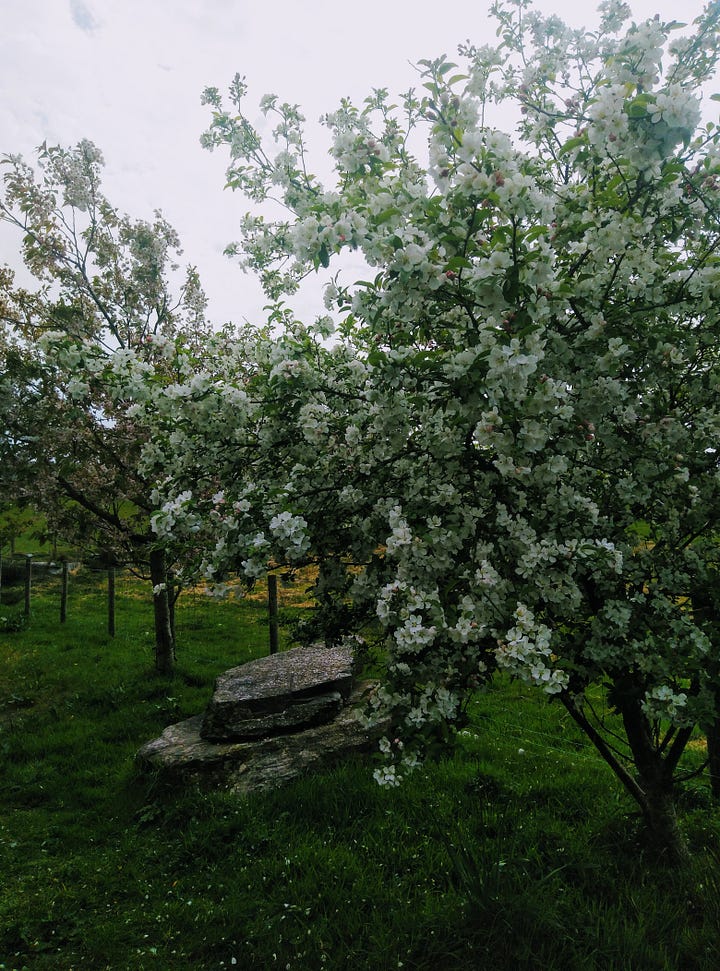
Even though the tone can be read as pompous and condescending at times, his account offers a fascinating slice of recent history, sketching out a blueprint for what makes today’s community so remarkable. Among exoticist generalisations of “simple” and “lyrical” inhabitants, there are examples of a Croesor essence which are echoed in my own experience. ‘It must be stated that the villagers are quite extraordinarily individuated. I can think of no two who are alike.’ His observation about the depth rather than breadth of social dynamics feels especially true today: ‘As though to compensate for the lack of material in a small community, one person in the eye of another assumes huge proportions…’
It’s the magnifying, layer-peeling quality to relationships. Easily sliding into gossip, other people’s business is a constant topic of conversation, as we are all affected by one another, be it through the concrete chords of family and marriage, or a more ephemeral sense of civic duty. News spreads like mycelium, almost instantaneously: shared over a panad, a pint, whilst grabbing a paper from the village shop. And of course, the more noble side to gossip is care, expressed through an unquestioning rallying around when someone is in need – practically and emotionally.
I must be thankful to Philip O’Connor for identifying a literary trap which I, with my sentimental tendency, can often fall prey to. Whilst describing Croesor’s natural beauty he acknowledges that ‘to repeat, to dream this landscape away into faery is to waste it; its character is in its superfine actuality.’ The same can be said when describing the community. There is a temptation to lean into an idealised version where we all skip around a bonfire and get along. Life can be hard up here, especially for young people. Winters are brutal. Houses are damp, cold, and there isn’t much to do if you can’t go outside. Sometimes I yearn to go for a walk and not have to speak to anybody I know, which is often not the case. We are also admittedly in a bubble, feeling oddly untouched by the news we hear from Westminster or even the Senedd. Political engagement therefore can feel stifled, there is less of a sense of urgency and physically fewer groups and initiatives to join.
But beyond the caveat that things aren’t perfect lies real depth. Sometimes you feel as if you’re living in a sitcom, everyone is so distinctly themselves and loyal to their own brand of character. You go to the pub, perch outside with a drink, and here’s the local musician-slash-mystic waxing lyrical about the power of psilocybin, there’s the elderly woman who lives next door, partial to whiskey and cigarettes, always with a salacious twinkle in her eye. A girl hanging off her dad who’s still dressed in his work clothes, who can hold her own in any adult conversation, and will soon ask if you can buy her a packet of crisps. These aren’t people I’d necessarily spend time with if I lived in a city, where you naturally filter people out based on similar ages and interests. But that, to me, is real community: unfussy, unspoken familiarity shared with beings of all manners and textures. Crag next to berry next to pond.
Everyone is given space to be, there is an implicit acceptance of each other’s quirks and foibles, even if they’re not always easy to agree with – or like. With a total population in the hundreds, there’s limited choice in terms of who you can spend your time with. As a young-ish person (if I’m still allowed to say that at 31) I’m relatively lucky, as in the past five years or so there has been a sizeable influx of people from my generation, people like me moving back home, bringing partners and starting families, or encouraging their friends to do the same.
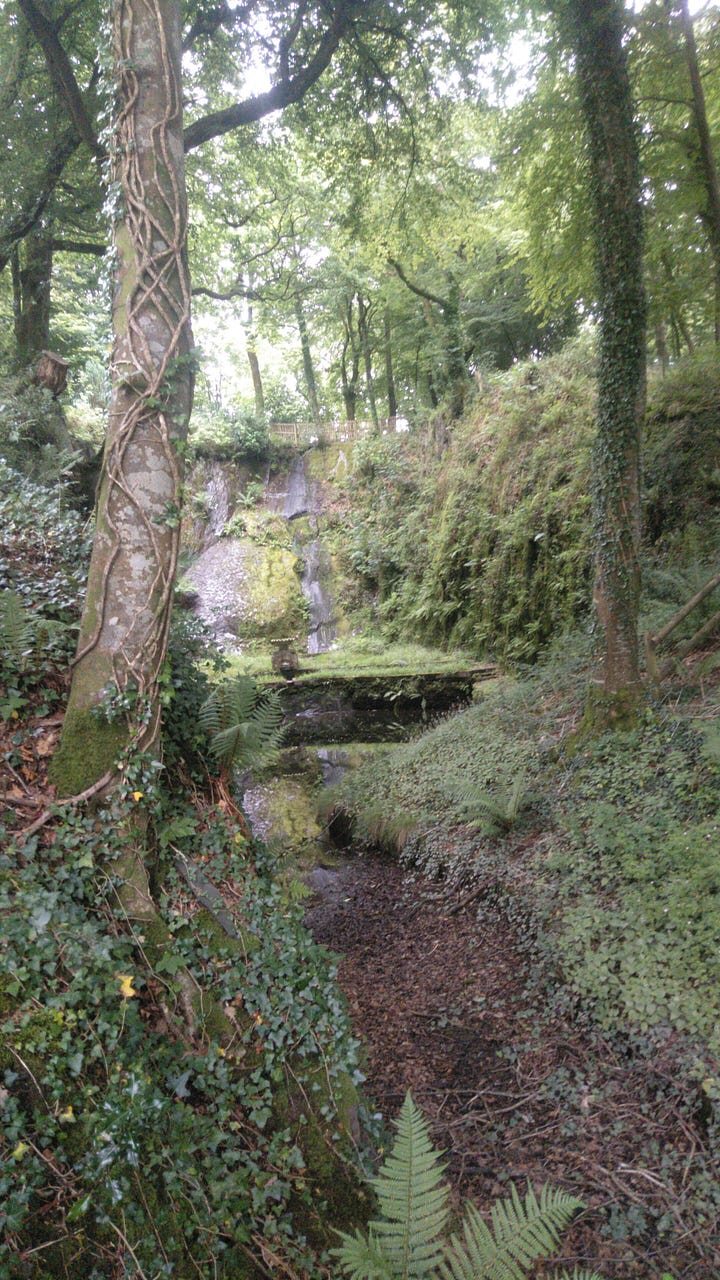
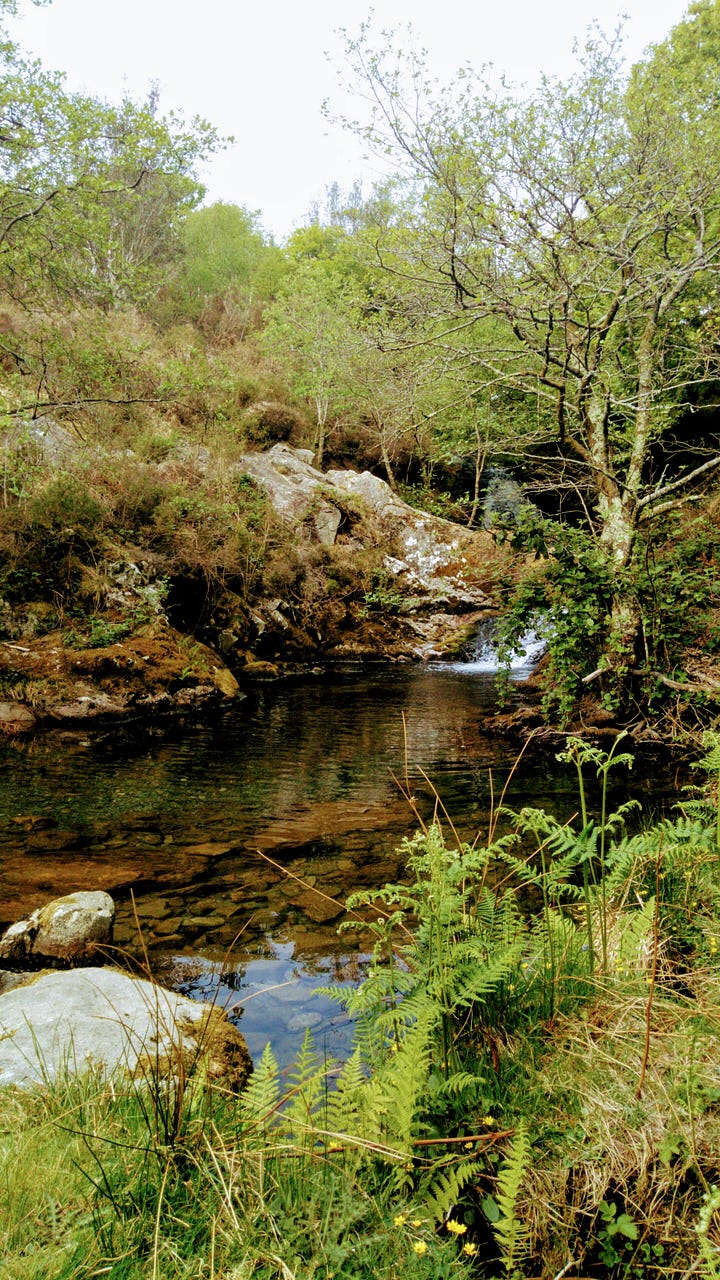
The future of the community lies in its shared spaces: in Llanfrothen we have the village shop, the famous pub nicknamed “Y Ring” because it used to moor boats when the sea reached its edges, the primary school; the old farmhouse up in Croesor that was transformed into a community-owned gallery and event space in the early noughties. Without these physical hubs where people can casually bump into each other, exchange ideas, develop and grow (or just simply enjoy a coffee and cake) our individual lives become like satellites, separate abodes crossing paths whilst on our daily walks, but missing out on the spontaneous mingling of social events. (Luckily, we know how important these institutions are, as illustrated by a campaign to re-open the pub last year, urging Robinsons brewery to “release the lease” so it could be community owned. It’s still under Robinsons but luckily open again with new owners.)
There has been a series of closures in Croesor since the quarry wound down almost a hundred years ago. The primary school, which I was lucky enough to attend, shut its doors in 2009 due to low numbers and high running costs. The chapel has fallen into disuse, an inevitable symptom of religion’s weakening grasp. Oriel Caffi Croesor is in the middle of an assessment period to figure out ways to keep it afloat. Despite all of this, the community has sustained. Families continue to plant steadfast roots, workshops are run, summer days are spent in the communal pool that was built with slate and filled with river water, music is shared and milestones are marked.
Like an ancient boulder gathering lichen, life grows in this remote patch of Meirionnydd. The fields, forests and stream have their own logic that will exist outside of human activity and trends, but at least for this small moment in time, there is a magnetic force that gathers us together, that keeps us here and beckons us in. The mountains once gave us industry through its blue-grey slate, instigating the village which homes us centuries on. The mountains hold us now, still and constant, as seasons fluctuate and we, the people, continue to weave our threads of connection. In and out, tangible as breath.
Silvia Rose is a published writer, tutor and freelancer born and raised in Eryri. Spanning poetry, short stories and nonfiction, her writing is largely inspired by her Welsh and Serbian roots.




I’ll soon be moving to Wales. I love the love imbued in your words as you speak of this lands. It is the same passion I hear from Michael Sheen when talking about Port Talbot.
I can say that the sense on community you describe is one of the reasons drawing me to Wales. I hope I’ll feel at home in no time!
Thank you so much for this nice read!
Geiriau hyfryd ♥️ I too am lucky to live and work in a tiny village on the other side of the Moelwynion. Of course it’s special because of the beauty, landscape, tranquility, but - it’s really the people.